It’s summer.
That means glorious sunny days with flower-filled gardens and air filled with heady fragrances.
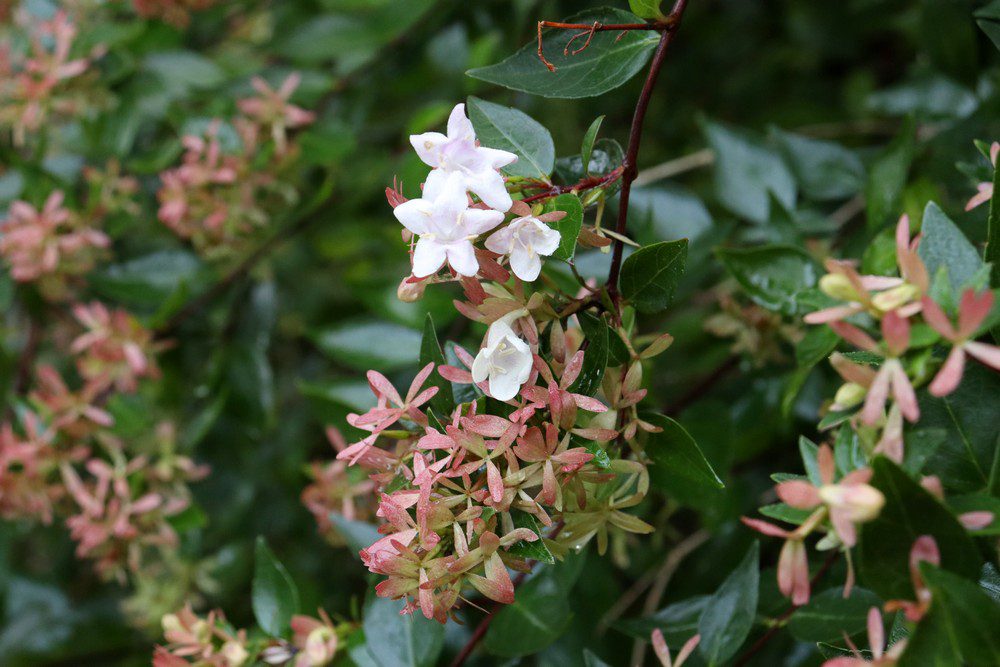
I found out by accident that abelias are perfumed
Unless you’re in my part of Britain, in which case it often means rain.
The Importance Of Perfumed Plants
Even the most foliage-obsessed of us enjoy flowers. There seems to be so many around at the moment: simple single flowers, daisies of various types, tall spires of delphiniums and lupins, the ruffled double roses.
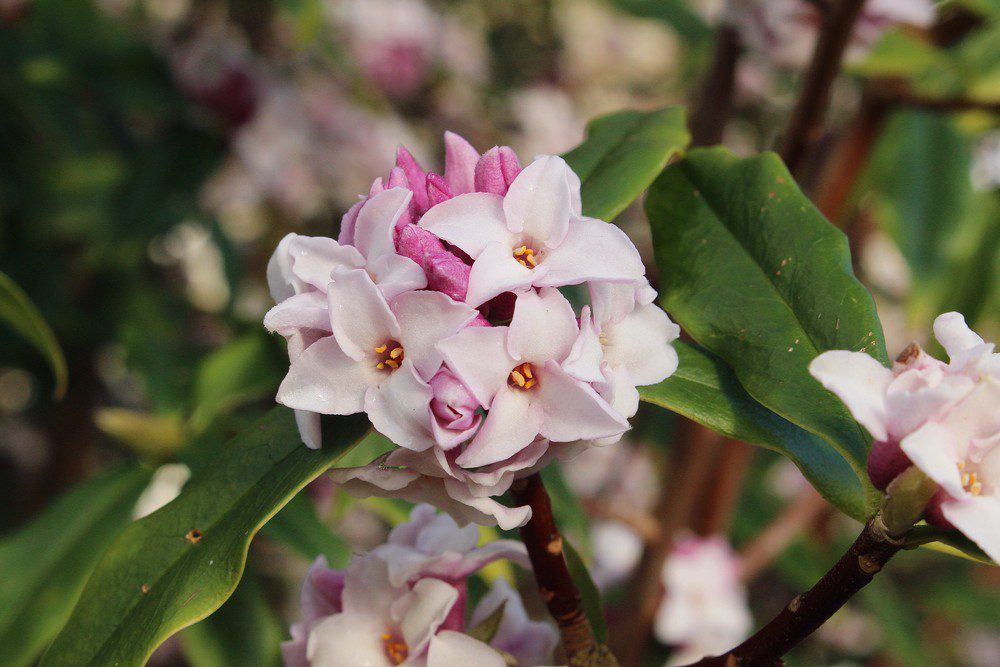
In late winter the daphnes are relished for perfume, but they offer nothing for summer when we’re more likely to be enjoying our gardens
Perfume is valuable to us because it adds an extra dimension to our plants and gardens, an extra sensory experience.
Different Perfumes
I’m always amazed at the range of different perfumes that flowers produce.
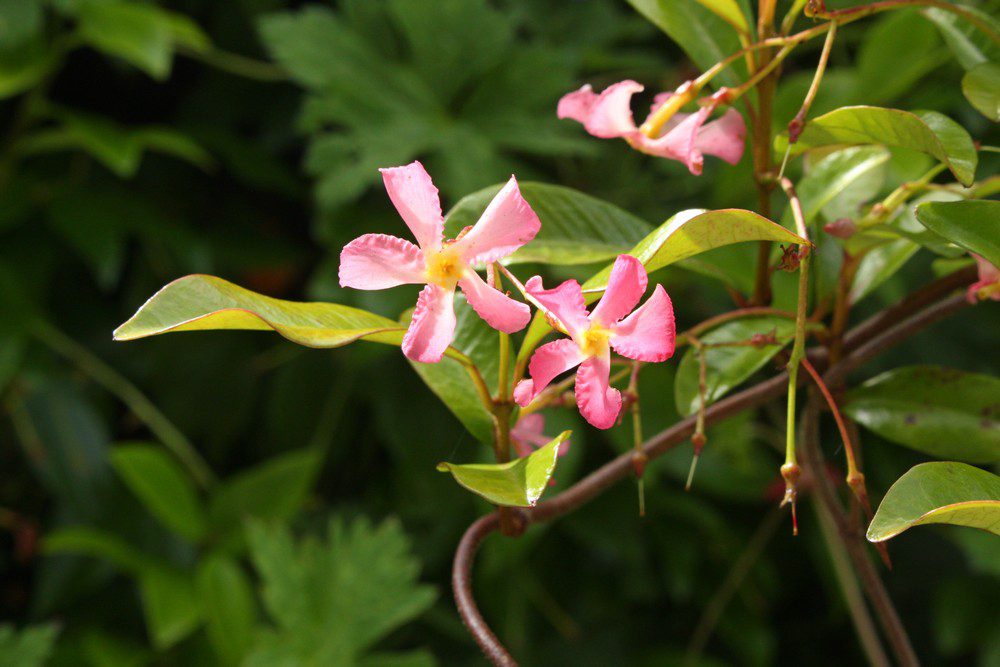
The flowers of star jasmine, Trachelospermum jasminoides, smell divine
Some are very light and fresh, some are very sweet, while some make me think of exotic spices.
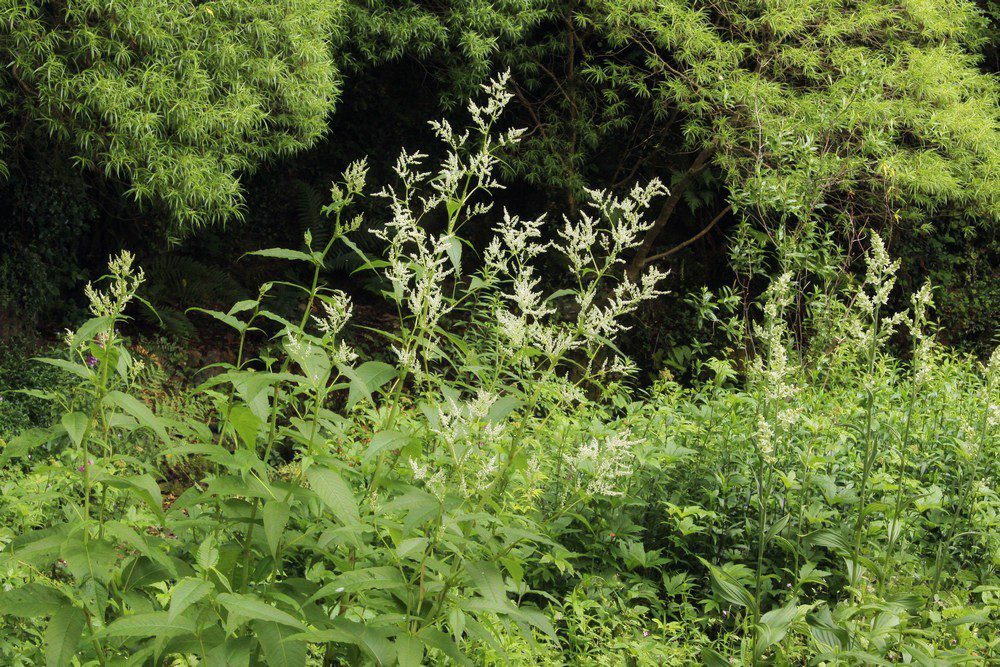
Koenigia x fennica looks great in a shaded woodland garden, but it doesn’t smell very nice
Not all perfumes are pleasant of course; some plants are pollinated by flies and beetles, and to attract these insects they produces foul scents more like rotting meat, stale urine or animal manure. Yuck!
Matter Of Taste
Even in the nicer perfumes it’s common for gardeners to have favourites, or at least some perfumes that they like more than others. A lot of people like the scent of gardenia flowers for example, but I personally find them sickly and stale smelling. Others can find lavender a bit too much…
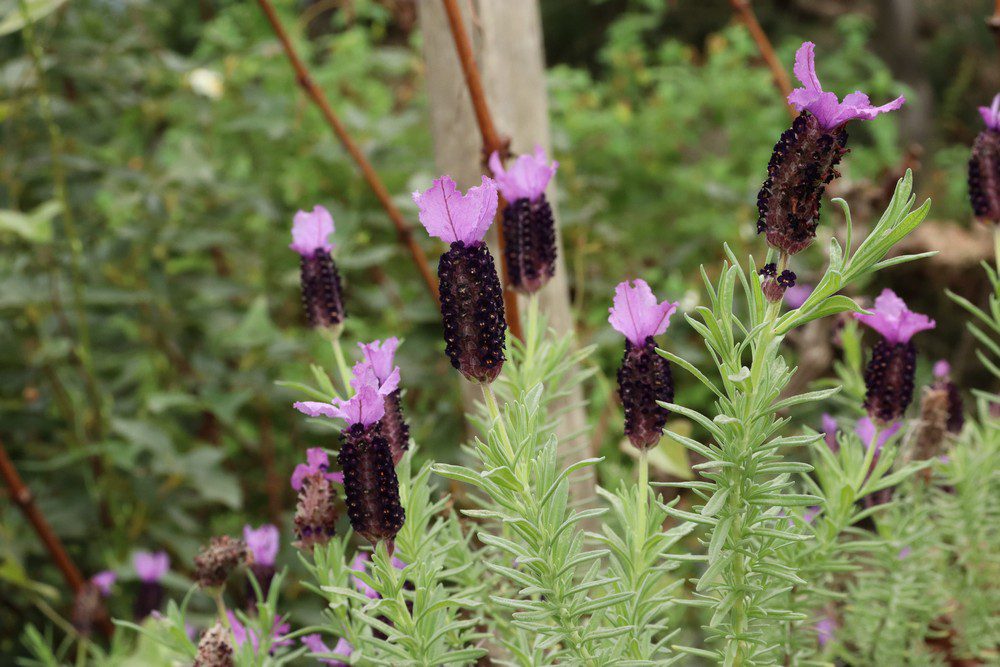
Lavender is an iconic scented plant, although it’s only really scented if you brush against it
Others dislike the bubblegum perfume of some philadelphus; I quite like them.
We all have our tastes and preferences, and this is what makes talking about the attributes of plants so much fun. I guess it’s no different to having different tastes in food.
Superstar Of Summer
If we had to pick a superstar flower for summer it would have to be the rose.
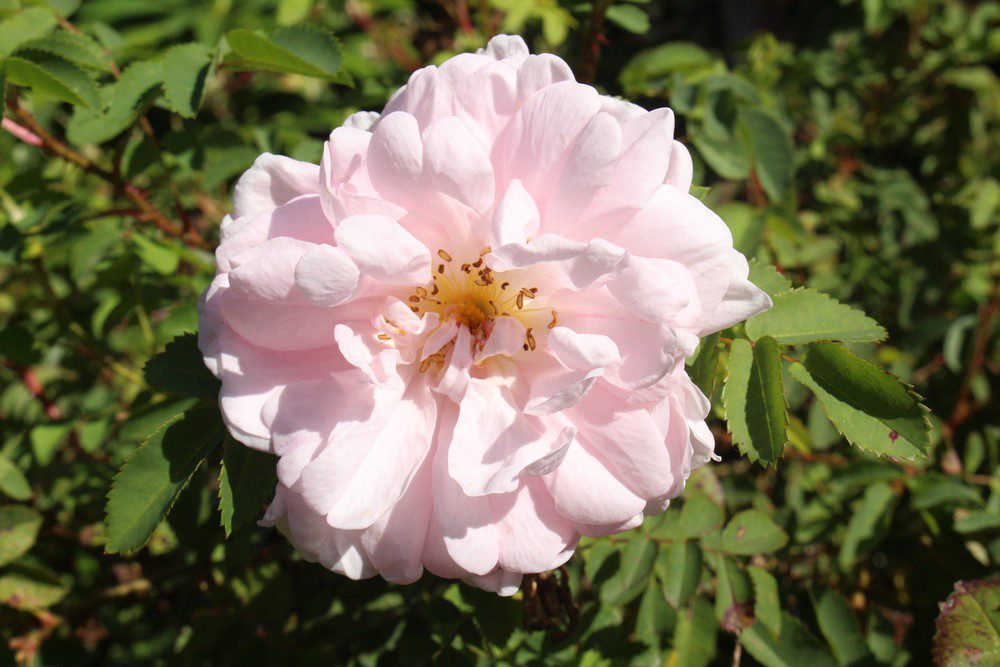
Rosa ‘Stanwell Perpetual’, an old English rose
Not only are we blessed with a diverse range of flower types and colours, so many garden roses are perfumed.
Some roses are only lightly perfumed- you must really search for any scent- but others fill the air with their fragrance.
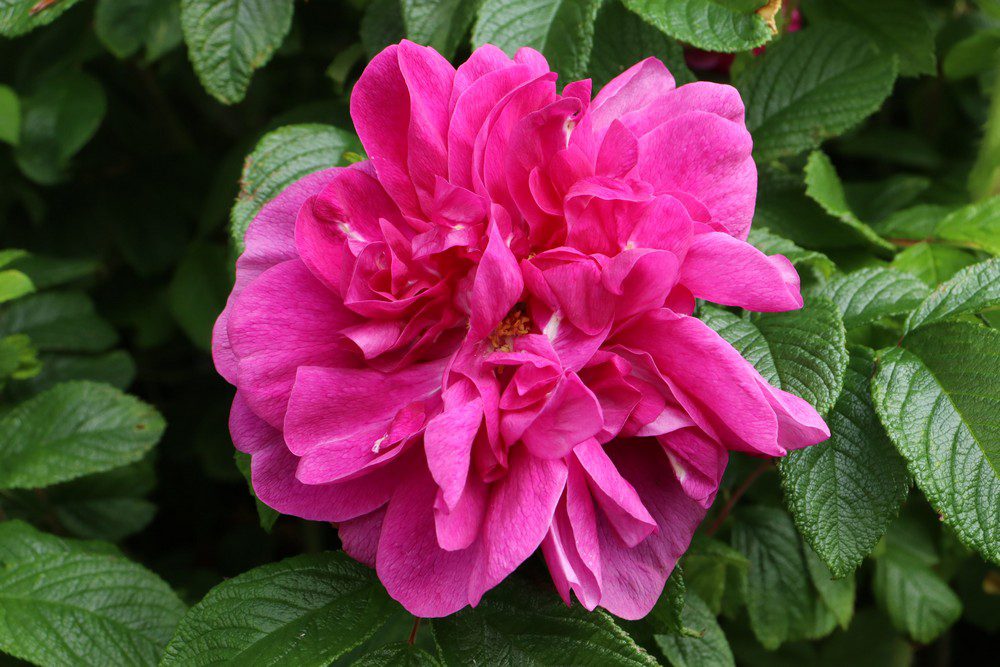
Where cultivation is appropriate the perfumes of ‘rugosa’ roses take some beating
I dream that one day circumstances will give me a garden with some old trees to grow rambling roses through. While their seasons are usually short, their abundant clouds of flowers perfume the whole garden if you’re lucky.
One of my absolute favourite roses of all, and possibly my top choice for a rambler, is ‘Francis E. Lester’. I’m enamoured with its flowers of pink and white, fading to white with a hint of pink, in July. It’s a fairly small plant by rambling rose standards, growing to maybe 12ft (4m) or so; this makes it a better choice for [large] fences and walls. Best of all I love catching its fragrance on the warm summer air.
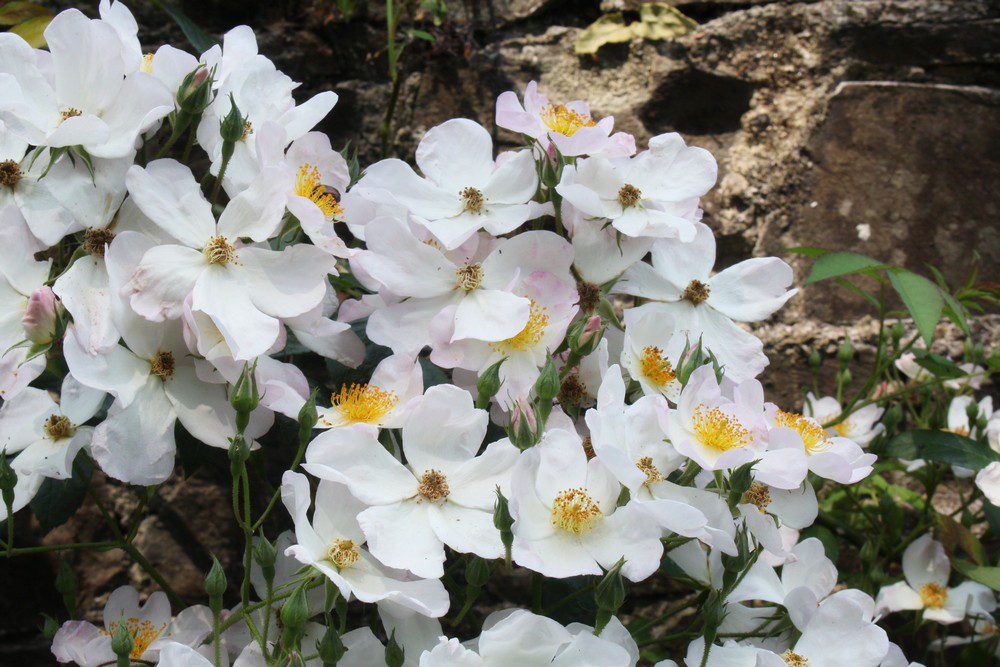
Rosa ‘Francis E. Lester’ is a fantastic rambling rose for perfume, even in light shade.
For me gardening is all about these pleasures. I still like the stinky plants too, there’s something subversive about a plant that smells bad. Everything tells us that plants should smell nice, fragrant, but we gardeners know better than to expect plants to do what we want.


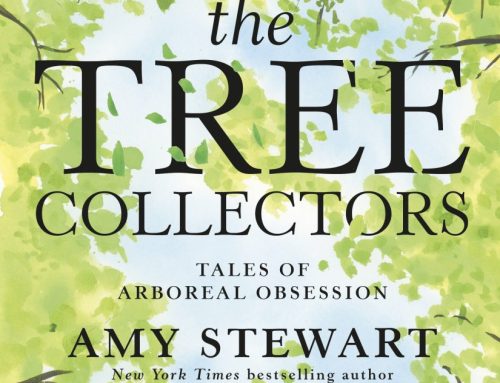
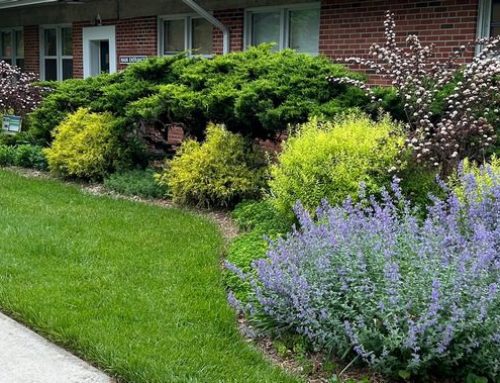
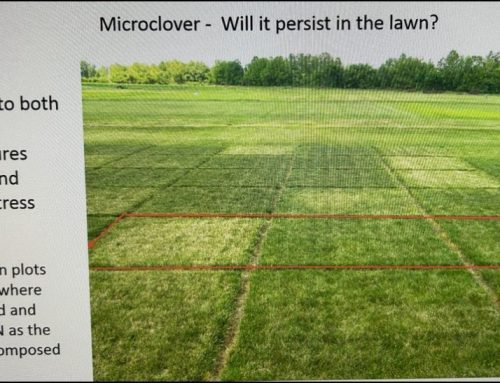
I always enjoy your rants, Ben. I’ll have to go check out my abelias, I’ve never noticed a fragrance from them. Roses are indeed wonderful, especially the rugosa rose scent. Two of my fave fragrant flowers are my conca d’oro lilies and common milkweed. I also have a white bearded iris that smells like milk of magnesia, which is not delightful, but definitely interesting!
Thank you, that’s very kind.
I was out early in the morning and couldn’t find what was pumping out a sweet perfume; turned out to be an Abelia.
Funny you say that you can only smell lavender when you brush up against it. On a hot and sunny day, it’s the first thing I smell in the AIR when I open the kitchen door. It’s hard for me to imagine anyone finding natural lavender’s scent overpowering though. But “different strokes for different folks”. Or maybe they’re just thinking of those “lavender” scented powders and sprays which often don’t smell like lavender at all. Thanks for the post. I’m definitely going to check out your rose recommendation.
I think in the hot and sunny places (hotter and sunnier than here!) it is a bit easier to smell on the air.
Some people struggle with ‘tangy’ perfumes; in my experience people who aren’t keen on autumn camellias are also less keen on lavenders.
Quick addition: One of my favorite scented plants in my own garden is Joe Pye Weed. Sadly, this year it’s been decimated by slugs 🙁
Wretched slugs!
I’d never noticed it having a scent. I have quite a few (self-seeded, it’s almost a weed around here) and will have to check them once they flower
Not being blessed with a good sense of smell I love all those plants that put out a powerful fragrance. My husband on the other hand is very sensitive to floral fragrances. He once thought there was a gas leak in the house only to find that it was a small bouquet of Lily ‘Stargazer’ that I had picked earlier in the day emitting it’s evocative fragrance. Hence, if I wish to enjoy aromatic plants it has to be outside.
Oops, although I get what you mean. For me certain lilies smell like the sea, but I can appreciate how they might also smell like gas.
Always enjoy your writing. Thanks so much!
Thank you very much.
Scent Is often a way to distinguish between varieties of plants. In the states (U.S.) we have azaleas that are native plants to our woodland. If the deer hadn’t eaten my two I would be commenting hands on about them in my garden as we speak. Interestingly, (when I had them both) I did distinguish the one from the other by their scent. (Although they are rhododendrons I will refer to them as azalea here) Azalea aborescens (smooth azalea) smells like heliotrope or rose; viscosum (clammy azalea) smells like cloves. Other varieties of the native azalea have varying degree of sweetness. I was lucky to have both until the deer ate the R. viscosum. Scent emitting from plants may be more of an attraction to insects than we realize. Why are flowers so beautifully scented? For humans alone? We do share all the sensory pleasures in nature that were evolved long before humans got here. I just wonder, what do the insects or other creatures “smell” that we cannot? Just like we’ve found insects see ultraviolet light giving them particular inference to aid their survival.
That’s a very interesting question, and one that could be difficult to answer.
We smell flowers as sweet, tangy, bad etc, but do insects smell the way we do? Is it the scent itself that lures the insect in or is at an ingredient of the scent?
Thank you for your rant. I enjoy your writing, and what a coincidence! I was just thinking about the scents of the gardens right before I visited Garden Rant. Perfect timing!
I have sixty acres that I’m slowly (snail’s pace) trying to turn into gardens. Last evening it was time to mow one of the fields. It took two hours and lots of fighting with horse flies, but it was worth it for the scent of the sweet clover in the air.
That’s the sort of thing that makes it all worthwhile, the scent of sweet clover, not the horse flies!
Thank you for reading.